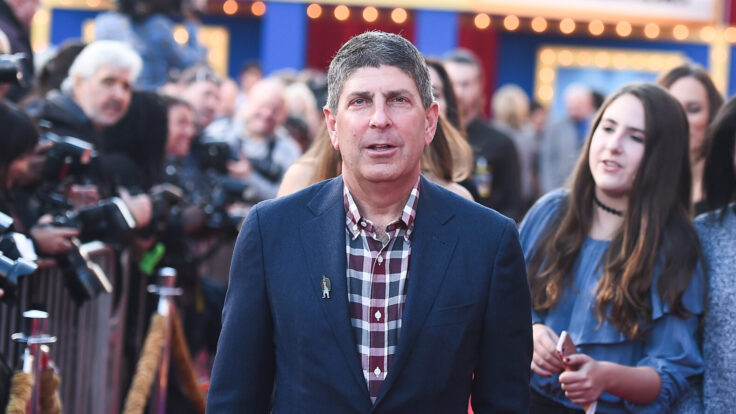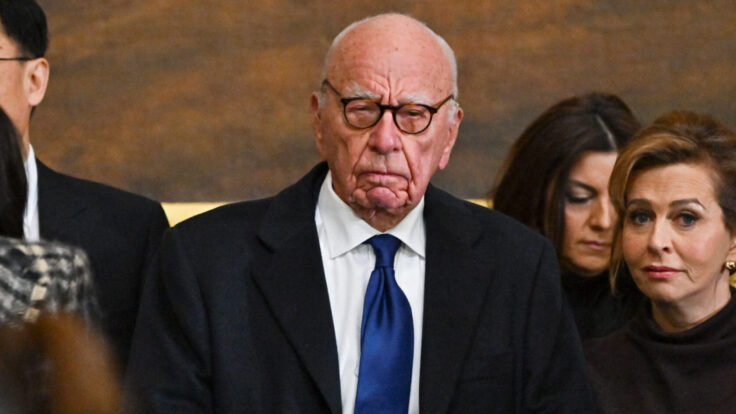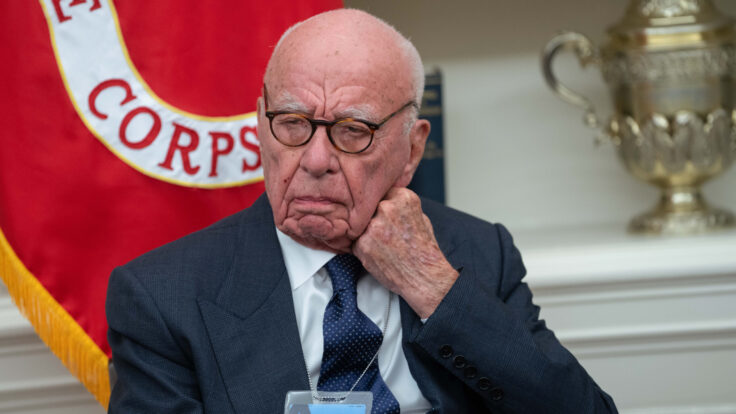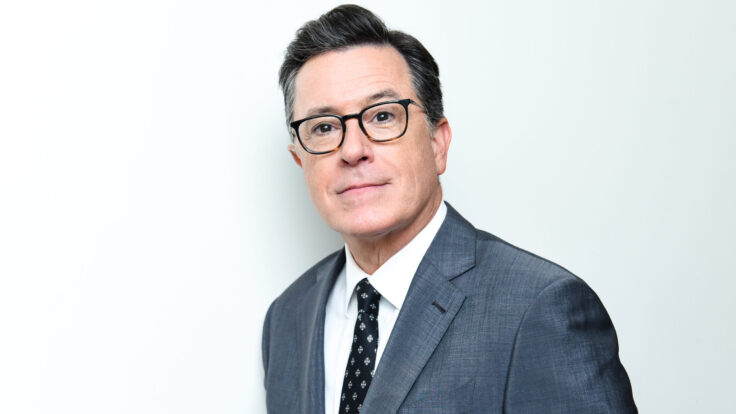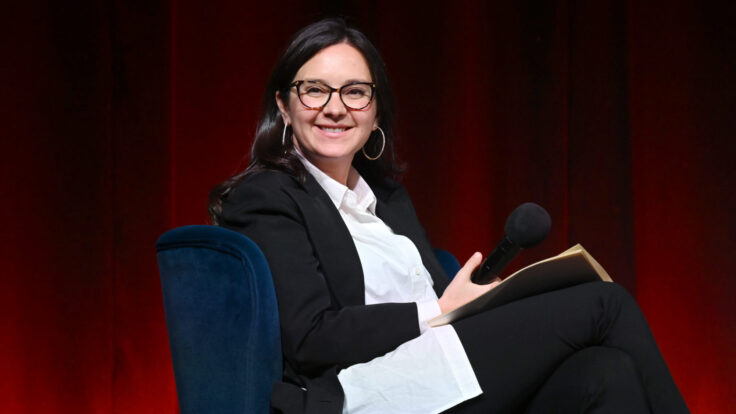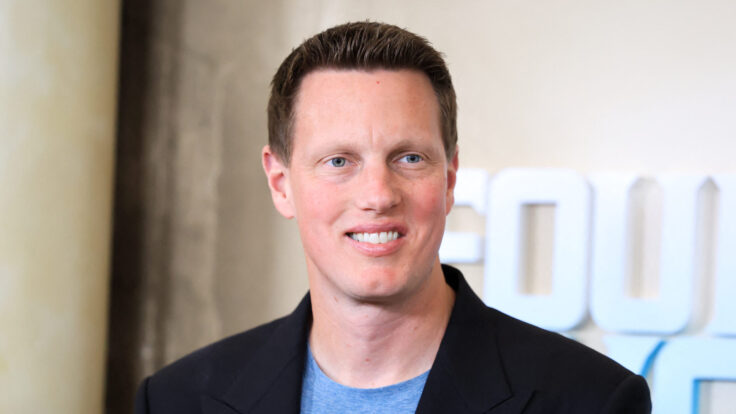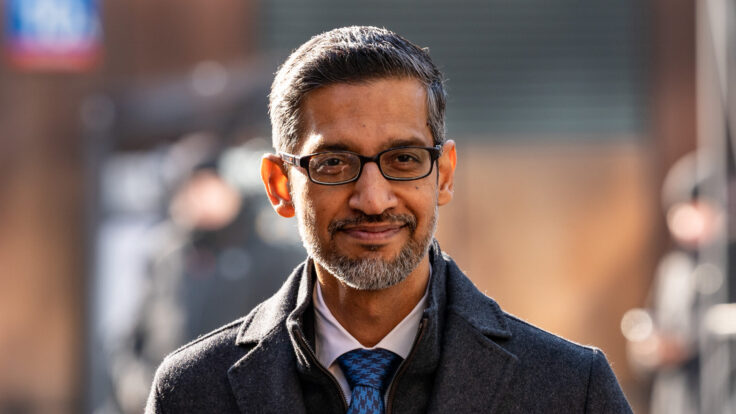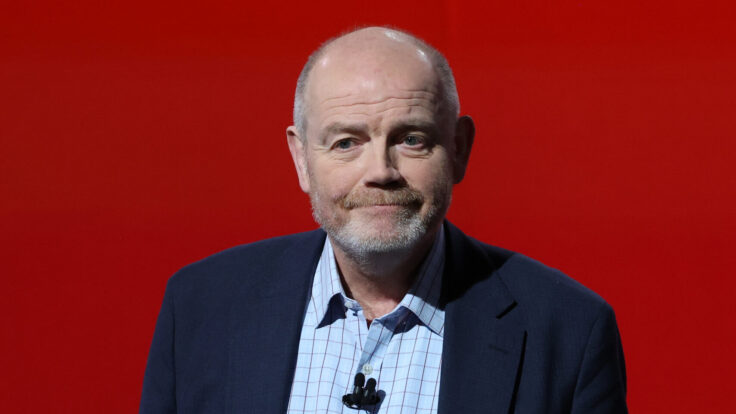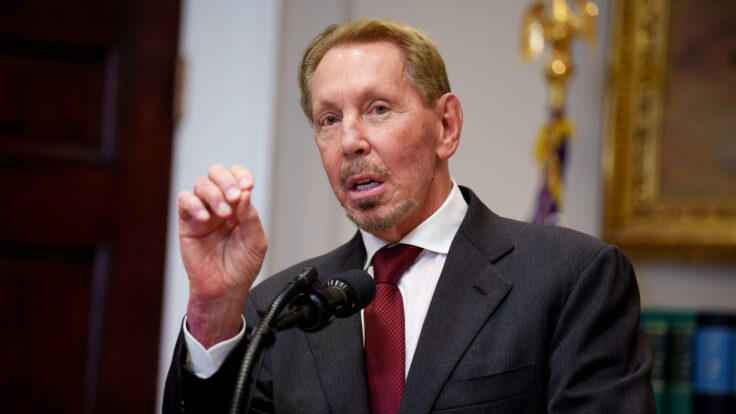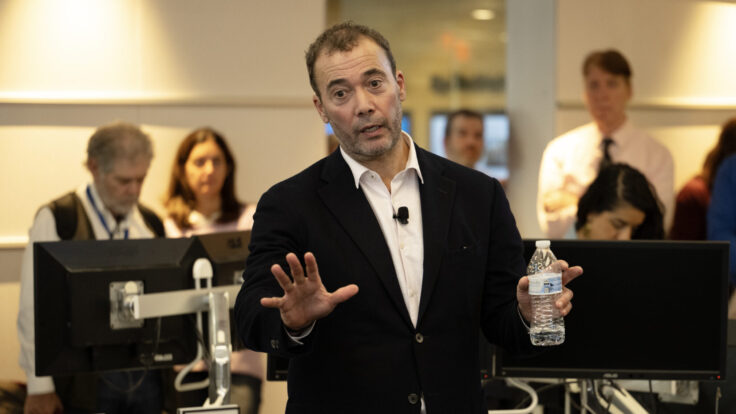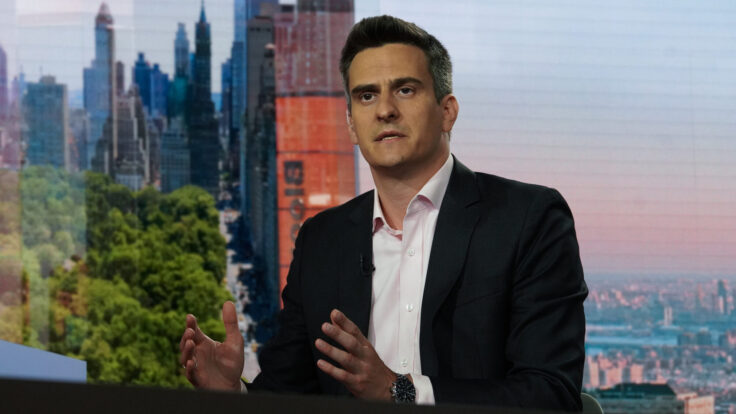Greetings from Los Angeles, where I’m currently evacuating my home as we speak, and welcome back to In the Room. My thoughts are with all of my neighbors in Hollywood, and all of you in the Palisades, Malibu, Altadena, Pasadena, and elsewhere who have lost homes, businesses, schools, or otherwise been affected by the fires. Meanwhile, a sincere thanks to all of the local reporters and production crews who have been doing a truly excellent job covering these fires. My Puck partner and fellow Angeleno Peter Hamby and I just finished recording a special edition of The Powers That Be about the local media response, which will post here tomorrow morning. Stay safe out there.
In tonight’s email, news, notes, and ruminations on the fears and anxieties of legacy media at the dawn of a second Trump term. As Bezos, Iger, and other business leaders appear to genuflect toward the president-elect, veteran journalists fear for the fourth estate. They may be missing the real threat.
Also mentioned in this email: Norm Pearlstine, Will Lewis, Kelly Campbell, Mark Thompson, Marty Baron, Marc Andreessen, Jann Wenner, Jonathan Swan, Joy Reid, John Harris, Josh Dawsey, Jack Dorsey, Ashley Parker, Alex Isenstadt, and many, many more…
But first…
|
- 🍸 The Grill Room: On the latest edition of the podcast, EverWonder founder and former Time Studios C.E.O. Ian Orefice joined me to talk about the future of sports on streaming, and what Netflix’s forays into the NFL, boxing, and WWE tell us about the future of live programming. Follow along on Apple, Spotify, or wherever you get your podcasts.
- Mark’s new millions: During a company town hall on Wednesday, CNN chief Mark Thompson revealed that Warner Bros. Discovery had recently invested more than $70 million in the cable network’s digital turnaround effort. It’s a meaningful investment in whatever still largely ambiguous plan Thompson is devising, and one that would be far more meaningful if it weren’t offsetting the tens of millions in losses the network will face as a result of its diminished linear ratings.
- A Politico head scratcher: In a forthcoming book, Politico’s Alex Isenstadt reports that a Fox News insider fed questions to Trump’s team 30 minutes prior to his appearance on a live town hall. (Fox says it is investigating the matter.) My question: Why did Politico let Isenstadt’s agents give that scoop to CNN?
|
|
Finally, before we start, my partner Matt Belloni asked if he could break some news that won’t hold for tomorrow’s What I’m Hearing email. Take it away, Matt…
|
|
|
 |
Matthew Belloni |
|
- Peacock’s Top Executive Is Out: Kelly Campbell, president of Peacock and direct-to-consumer at NBCUniversal, is leaving the company, two sources tell me. And what’s more interesting: Campbell won’t be replaced, at least not in that exact role. NBCU declined to comment on the move. Campbell was considered a big hire for Peacock back in 2021, having run Hulu as its president and serving as its C.M.O. Before that, she spent a decade in marketing roles at Google. Under her purview, Peacock has grown to 36 million subscribers in the U.S., thanks to such major NBC Sports events as the Paris Olympics and an exclusive NFL playoff game last winter. (Peacock does not operate internationally.)
But Comcast is reorganizing its NBCUniversal media unit as it prepares to spin off its declining cable networks, which include MSNBC, USA and E!. As part of that process, TV executive Mark Lazarus is exiting to run the unnamed “SpinCo,” while Matt Strauss has been upped to chairman of NBCUniversal Media Group, and Donna Langley, the previous film studio head, is now chairman of NBCUniversal Studio Group, overseeing all content operations, including for Peacock.
Campbell had reported to Strauss, and sources tell me her exit is the first step in a remaking of the TV and streaming business group under its newly elevated leader. Langley is likely to do the same on her side of the organization. It’s gonna be a wild 2025 at the home of the Peacock.
|
|
|
|
Thanks, Matt. And now, to the main event…
|
|
|
|
Yes, we’re all grossed out by billionaires and C.E.O.s genuflecting
to the incoming president, even if much of it is cynical lip-service. But the agony and angst of it all has overly simplified a much more complex challenge.
|
|
|
On Monday morning, Norm Pearlstine, an elder statesman of American journalism and veteran feudal lord of the L.A. Times, Time Inc., Bloomberg, and the pre- Murdoch Wall Street Journal, sent an email to about 150 old friends and associates— A.G., Dean, Jill, Fareed, Marty, Maggie, Bewkes, Andreessen, Mike Moritz, the Grubmans, etcetera—with a copy of his new essay for Columbia Journalism Review. It was a cri de coeur for fearless journalism in the second Trump era, neatly timed to the anniversary of January 6, with the weighty title: Trump, the Public, and the Press.
Chiefly a critique of Jeff Bezos, Patrick Soon-Shiong, and other Trump-accommodating media owners—replete with Maddow-esque detours on the president-elect’s transgressions and some CliffsNotes on Father Coughlin, McCarthyism, and Gingrich’s ’94 Revolution—the essay was a modern exemplar of the righteous alarm-sounding, choir-preaching, cry-in-a-canyon genre. Its straightforward thesis was really best articulated in the subhed: “The billionaire class has proved itself a poor steward of media. Journalists must redouble their efforts to expose the threat to democracy.”
Hours later, Jann Wenner hit reply-all: “Norm: Terrific summary of the objective situation.” Wenner also criticized Bob Iger for Disney’s decision to settle Trump’s defamation lawsuit against ABC News with a $16 million gift to the eventual Trump Presidential Library. That, Wenner wrote, “was a sad and sorry mark on journalism and defense of the first amendment. They had proved their mettle on DiSantis [ sic], but caved when it counted. Keep it up. Spread the Good Word.”
That evening, Parenting magazine founder Robin Wolaner told Norm she was “sharing your brilliant column widely.” Ron Shapiro, the famed sports agent and attorney, commended his freshman roommate (Haverford, class of ’64) on his “uncanny ability to perceive the scope of challenges and communicate their dangers. Keep at it.” On Wednesday, Joel Simon, the director of the Craig Newmark School’s Journalism Protection Initiative, joined the chorus: “I read this piece as a call for action and an admonition that we in journalism must come together and fiercely defend our rights,” he wrote. “No one else is going to save us.”
You can forgive this generation—and, indeed, this industry—for its sense of moral outrage and comparative helplessness during the afterglow of their brilliant careers. Trump’s first term was a golden era for the thriving #Resistance marketplace that Norm and his circle ostensibly long for—one in which media outlets like CNN, MSNBC, The New York Times, and The Washington Post saw record subscriber and audience growth, and Trump journalists (Maggie, Swan, Dawsey, Acosta, et al.) achieved lucrative, if fleeting, pseudo-celebrity status. But as I wrote on November 6, the day after the election, that marketplace has been decimated and is unlikely to return with similar force outside of a few obvious muted venues, such as The Atlantic—itself run by a more sanguine billionaire.
This phenomenon mirrors the “ un-resistance” of the Democratic Party itself. Of course, the Joy Reid genre of “ Kamala ran a ‘flawless’ campaign” liberal punditry has proven to be siloed, ineffective, and exhausting. But, more importantly, the aforementioned businesses, with the exception of the Times, have been significantly diminished both by market forces and the ineptitude of their leaders (a familiar refrain here, I know).
Perhaps most dispiriting for Norm and his ilk, it seems, is the lingering sense that the priorities of the billionaire media owners appear to have changed so dramatically and, to add insult to injury, so unapologetically. Obviously, Elon
Musk’s X is a very different animal than Jack Dorsey’s Twitter. But many others have given the impression of a stunning volte-face. Mark Zuckerberg’s decision to eliminate fact-checking from Facebook and Instagram after investing in it heavily following Trump’s 2016 victory, and the decision to roll the policy out on Fox News, has been widely portrayed as the latest and most extraordinary capitulation by the billionaire class (never mind that Zuck has been moving toward this for some time). Bezos’s newfound optimism and even enthusiasm about Trump, which he articulated at DealBook, stands in stark contrast to the man who stood side by side with Marty Baron at Jamal Khashoggi’s memorial and helped conceive “Democracy Dies in Darkness” as the Post’s slogan.
|
Speaking of The Washington Post…
|
Indeed, the current drama at the Post epitomizes these changing times. Bezos’s decision to block the Harris endorsement, op-ed editor David Shipley’s decision to kill a critical cartoon of Bezos and other tech titans abasing themselves before Trump, and the exodus of top political reporters like Josh Dawsey (to the Journal), Tyler Pager (to the Times), and Ashley Parker and Michael Scherer (to The Atlantic)—these are all significant data points suggesting that this is not Baron’s paper anymore. Meanwhile, Will Lewis’s appointment as publisher and C.E.O. feels like an intentional affront to the pride and sanctimony of reporters who see journalism as a noble calling, rather than a for-profit business. In telling a proud newsroom that “no one is reading your stuff,” reminding union members that they’re welcome to quit if they don’t like his policies, and publicly calling NPR’s media reporter “an activist,” Lewis has proved to be a reckless bull among sacred cows.
But that, of course, is the point. Bezos acknowledged for more than a year that financial success, or at least financial stability, is his top priority for the Post. And while it can be hard to support the idea that alienating your core audience and losing your best-known reporters is good for business, it was also impossible to defend an existing strategy that resulted in around $100 million in annual losses, a near-constant state of internal corporate warfare, and cutting hundreds of employees every year. (The Post laid off another 4 percent of its staff this week. And given that this won’t make much of a dent in its deficit, more is sure to come.)
As for the Dawsey & Co. defections, well, that almost certainly wasn’t part of the plan, and certainly emphasizes Lewis’s leadership shortcomings and lack of finesse. At the same time, these journalists’ “star power” should probably also be contextualized by the fact that, well, no one was reading their stuff.
In any event, it’s understandable that dispirited liberals would look at the current media landscape and fear that the pillar of the fourth estate, itself, was crumbling. But as Semafor’s Liz Hoffman has noted, the current rightward lurch of tech and media leaders was hardly any more theatrical than the progressive shift many of these people made nearly a decade ago. Meanwhile, none of the hard-hitting journalism that really matters to the future of the Republic is actually threatened by Bezos’s decisions to forgo an obvious and ineffectual presidential endorsement, or Shipley’s move to scrap a rather uninspired cartoon, nor even Iger’s decision to settle a defamation lawsuit in order to save his company and network from suffering far greater financial and reputational damage. The real, needle-moving, deeply sourced journalism is still being championed and maintained across all these institutions, including the Post. In fact, one of the Post’s genuine challenges is that liberal political journalism is actually oversaturated, and that the market doesn’t demand 500 political reporters covering the same 55,000-square-foot White House.
|
|
Instead, the more significant threat to the fourth estate is the decline of these media businesses, themselves, which in turn diminish their clout. As Politico’s John Harris argued a few years back, “the dilution of institutional power in an age of media hyper-saturation” has deprived legacy media organizations of their influence, which, in turn, “is a gift to public officials seeking to evade accountability.” And this problem is especially acute at legacy organizations that have suffered under bad owners or bad leaders who accelerated the pace of decline. But the weakening of the fourth estate isn’t happening now and because of Trump’s election—rather, it started years ago, and presaged it.
In that regard, what Norm and his friends should really be pining for are successful business models that will allow journalistic institutions to endure, and to do so independent of the generosity of any billionaire benefactor. In other words, exactly what Bezos, himself, is pining for at the Post, which, as he put it more than a year ago, is profitability and “financial success.” At present, it seems as though he and Lewis intend to get there by transforming the company into a nonpartisan global news report that doesn’t depend on star talent or partisan affinity—The Economist meets USA Today, perhaps, or whatever Semafor initially set out to be when it aspired to reach 200 million college-educated English readers. It’s actually an incredibly noble business goal, and even an editorial one, too.
Whether Jeff and Will know how to get there is another matter. Bezos said at DealBook that he has some unspecified “ideas,” but time may prove that he was far too busy with other pursuits in global and intergalactic domination to be the savior the Post needed, and that Will was, in fact, the unscrupulous charlatan that his critics have colored him as. Alternatively, they may have a plan that takes years to execute, but which will render the Baron-era romanticism a footnote. But they were never going to get where they wanted to go with the paper Fred Ryan left them, nor is Bezos likely to be satisfied with an only marginally profitable business that caters to an audience of mere millions. The Times may be the benchmark for success
in this industry, but Bezos is used to far higher profit margins.
In another reply on the email thread, the Pulitzer Prize-winning reporter Jonathan Kaufman recalled running into Norm years ago in the Bloomberg L.P. lobby in New York, where the seasoned journalist told him: “You know what I have learned in my years of journalism, Jonathan? Choose your billionaires wisely.” Like many on the chain, Kaufman had concluded that “our current crop of billionaires” weren’t the answer.
On the other hand, who else would be able to tolerate years of financial losses, union fights, internal headaches, and shifting political winds while the industry figures out what the hell it’s going to do? And what if—just what if—these transformations, however painful in the moment, actually work out? Lost in all the sturm und drang about the Post is the fact that, without Bezos, it would likely be out of business.
|
|
|
|
Finally, a media podcast about what’s actually happening in the media—not the oversanitized, legal-and-standards-approved version you read online. Every Tuesday and Friday, join Dylan Byers, Puck’s veteran media reporter, as he sits down with TV personalities, moguls, pundits, and industry executives for raw, honest, sometimes salacious conversations about the business of media and its biggest egos. New episodes publish every Tuesday and Friday.
|
|
|
|
A professional-grade, insider-friendly tip sheet from John Ourand, the industry’s preeminent sports business journalist, covering the leagues, agencies, media deals, and the egos fueling it all.
|
|
|
Need help? Review our FAQ page or contact us for assistance. For brand partnerships, email ads@puck.news.
You received this email because you signed up to receive emails from Puck, or as part of your Puck account associated with . To stop receiving this newsletter and/or manage all your email preferences, click here.
|
|
Puck is published by Heat Media LLC. 107 Greenwich St, New York, NY 10006
|
|
|
|
